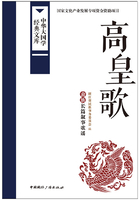Gottfried Wilhelm, Baron von Leibnitz, was born in 1646 at Leipzig, where his father was professor of Philosophy. The subject that he studied in view of a profession was jurisprudence, but first, in accordance with the fashion of the day, he made a study of Philosophy, and to it he devoted particular attention. To begin with, he picked up in Leipzig a large and miscellaneous stock of knowledge, then he studied Philosophy and mathematics at Jena under the mathematician and theosophist Weigel, and took his degree of Master of Philosophy in Leipzig. There also, on the occasion of his graduation as Doctor of Philosophy, he defended certain philosophical theses, some of which discourses are still contained in his works (ed. Dutens, T. II. P. I. p. 400). His first dissertation, and that for which he obtained the degree of doctor of philosophy, was: De principio individui, - a principle which remained the abstract principle of his whole philosophy, as opposed to that of Spinoza. After he had acquired a thorough knowledge of the subject, he wished to graduate also as Doctor of Laws. But though he died an imperial councillor, it was his ill fortune to receive from the Faculty at Leipzig a refusal to confer the doctorate upon him, his youth being the alleged reason. Such a thing could scarcely happen nowadays. It may be that it was done because of his over-great philosophical attainments, seeing that lawyers are wont to hold the same in horror. He now quitted Leipzig, and betook himself to Altdorf, where he graduated with distinction. Shortly afterwards he became acquainted in Nürnberg with a company of alchemists, with whose ongoings he became associated. Here he made extracts from alchemistic writings, and studied the mysteries of this occult science. His activity in the pursuit of learning extended also to historical, diplomatic, mathematical and philosophical subjects. He subsequently entered the service of the Elector of Mayence, becoming a member of council, and, in 1672 he was appointed tutor to a son of Von Boineburg, Chancellor of State to the Elector. With this young man he travelled to Paris, where he lived for four years. He at this time made the acquaintance of the great mathematician Huygens, and was by him for the first time properly introduced into the domain of mathematics. When the education of his pupil was completed, and the Baron Von Boineburg died, Leibnitz went on his own account to London, where he became acquainted with Newton and other scholars, at whose head was Oldenburg, who was also on friendly terms with Spinoza. After the death of the Elector of Mayence, the salary of Leibnitz ceased to be paid; he therefore left England and returned to France. The Duke of Brunswick-Lüneburg then took him into his service, and gave him the appointment of councillor and librarian at Hanover, with permission to spend as much time as he liked in foreign countries. He therefore remained for some time longer in France, England, and Holland. In the year 1677 he settled down in Hanover, where he became busily engaged in affairs of state, and was specially occupied with historical matters. In the Harz Mountains he had works constructed for carrying off the floods which did damage to the mines there. Notwithstanding these manifold occupations he invented the differential calculus in 1677, on occasion of which there arose a dispute between him and Newton, which was carried on by the latter and the Royal Society of London in a most ungenerous manner. For it was asserted by the English, who gave themselves the credit of everything, and were very unfair to others, that the discovery was really made by Newton. But Newton's Principia only appeared later, and in the first edition indeed Leibnitz was mentioned with commendation in a note which was afterwards omitted. From his headquarters in Hanover, Leibnitz, commissioned by his prince, made several journeys through Germany, and also went to Italy in order to collect historical evidence relative to the House of Este, and for the purpose of proving more clearly the relationship between this princely family and that of Brunswick-Lüneburg. At other times he was likewise much occupied with historical questions. Owing to his acquaintance with the consort of Frederick I. of Prussia, Sophia Charlotte, a Hanoverian princess, he was enabled to bring about the foundation of an Academy of Science in Berlin, in which city he lived for a considerable time. In Vienna he also became acquainted with Prince Eugène, which occasioned his being appointed finally an Imperial Councillor. He published several very important historical works as the result of this journey. His death took place at Hanover in 1716, when he was seventy years of age.(1)It was not only on Philosophy, but also on the most varied branches of science that Leibnitz expended toil and trouble and energy; it was to mathematics, however, that he specially devoted his attention, and he is the inventor of the methods of the integral and differential calculus. His great services in regard to mathematics and physics we here leave out of consideration, and pay attention to his philosophy alone. None of his books can be exactly looked on as giving a complete systematic account of his philosophy. To the more important among them belongs his work on the human understanding (Nouveaux essais sur l'entendement humain) in reply to Locke; but this is a mere refutation. His philosophy is therefore scattered through various little treatises which were written in very various connections, in letters, and replies to objections which caused him to bring out one aspect of the question more strongly than another; we consequently find no elaborated systematic whole, superintended or perfected by him. The work which has some appearance of being such, his Théodicée, better known to the public than any thing else he wrote, is a popular treatise which he drewup for Queen Sophia Charlotte in reply to Bayle, and in which he took pains not to present the matter in very speculative form. A Würtemberg theologian, Pfaff by name, and others who were correspondents of Leibnitz and were themselves only too well versed in philosophy, brought it as a charge against Leibnitz - a charge which he never denied - that his philosophy was written in popular form.(2) They laughed very much afterwards at Wolff, who had taken them to be quite in earnest; his opinion was that if Leibnitz were not perfectly serious in this sense with his Théodicée, yet he had unconsciously written his best therein. Leibnitz's Théodicée is not what we can altogether appreciate; it is a justification of God in regard to the evil in the world. His really philosophic thoughts are most connectedly expressed in a treatise on the principles of Grace (Principes de la Nature et de la Grace),(3) and especially in the pamphlet addressed to Prince Eugéne of Savoy.(4) .Buhle (Geschichte der neuern Philosophie, vol. iv. section 1, p. 131) says: “His philosophy is not so much the product of free, independent, original speculation, as the result of well-tested earlier” and later “systems, an eclecticism whose defects he tried to remedy in his own way. It is a desultory treatment of Philosophy in letters.”
同类推荐
热门推荐
高皇歌:畲族长篇叙事歌谣(中华大国学经典文库)
《高皇歌》又称《盘古歌》、《龙王歌》,它是以追述和歌颂畲族祖先业绩为主的历史长歌,是畲族重要的民间文学作品。首先叙述盘古开天辟地,创造人类生存的生产、生活条件,接着记述了龙麒平番建功、被招为驸马的故事。上古高辛帝时,番王犯境,龙麒自愿领旨,奋勇征番,斩杀番王,胜利归来。高辛帝封龙麒为王,并将三公主许配给他。公主婚后生下三男一女。高辛帝赐其长子姓盘,名自能,次子姓蓝,名光辉,三子姓雷,名巨佑;一女因许配给钟志深,即姓钟。盘、蓝、雷、钟自成为族——即现今的畲族。歌中对族内婚、传师学师习俗等,作了详细的叙述。它是珍贵的文化遗产,具有较高的历史价值和艺术价值。国民女神不好追
【本书是黑历史,文笔只有更差,各位看客手少留情,千万千万不要点进去!黑历史躲避方法:请另寻别的小说(汗,挥手,拜)】 她这半生苦极了,少年有所为,爱笑爱糖,却遮不住她的苦,许甜,谁许她一世甜?许甜这一生肆意妄为,混世魔女一个,却败给了爱情,自我放逐。【剧场一】:“然然,我想吃糖人。”许甜缠着慕泽然。慕泽然看着许甜:“好。”因此,慕泽然背着许甜步行了九里,只为给许甜买一个糖人。【剧场二】许甜抬头看着拥抱她的人:“慕泽然,你怎么在这?”“甜瓜,你来这放逐,我来这追逐。甜筒,我们回家吧,我想宠你一辈子。”〖我原以为你是余生的遥不可及,没想到你是余生的得偿所愿〗『不弃坑√,高宠高虐√,新鲜√』欢迎入抗!(本文纯属虚构)















